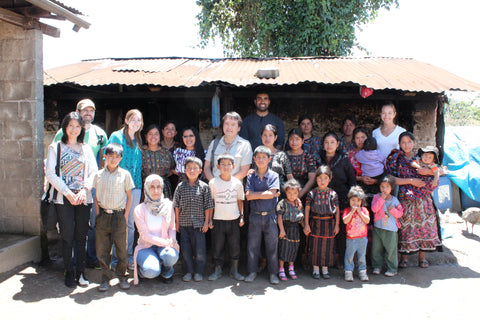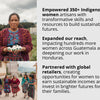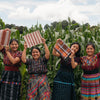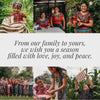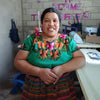Empowered Women Create Healthy Communities
- by Kayla Kohlenberg
Recently, a team led by Dr. Mori J. Morikawa from University Hospitals Case Medical Center, Cleveland, OH, completed their third visit addressing the health needs of artisan communities in Guatemala. Building on their last visit, they provided trainings covering topics determined to be need attention areas. Considering the holistic wellbeing of the women, activities ranged from exercises to help alleviate neck and back pain to the components of a balanced diet, from safely dressing a cut to self-empowerment.

During the empowerment discussions, the strength of the women present was inspiring. Small comments would detail the hardships they have faced in their lives, such as losing family members in the Civil War or not being able to afford to go to school, however these stories were outshined by smiles, giggles, and clapping, as their determination to change their lives and the lives of their families filled the room. When asked the question, “Why did you join Mercado Global?” the answer, over and over, was similar: for a better life.
This resolve to improve the wellbeing of the community highlights what is so unique about Mercado Global. Educating and empowering artisans through business training and community-based workshops sets Mercado Global apart as an innovative, comprehensive, and pioneering force to help these women break the cycle of poverty. Dr. Morikawa, Head of Case Western University School of Medicine – Global Health Track, recognizes this, saying “Women are the key in global health… Seeing them engaged in asking questions, and Barbara (Quieju, Business Skills & Asset Development Program Coordinator) so animated in interacting with them is really a special experience for me.”

One such remarkable moment emerged out of a teambuilding activity in one of the communities. Asked to come up with a collective name, the women were at first very hesitant. Soon though, many original names started flying, until an idea came from a new member of the cooperative. She quietly suggested “Mujeres Artesanas Luchadoras,” or the group of “Women Artisans Fighters,” because, she said, “We are fighting for something.” With a vote of support from the rest of the group, this became their united name.
The team from Case Medical Center continues to develop the health curriculum, concentrating on empowerment activities. They plan to create a new, collaborative approach to community health, in which the artisans become agents of their own change, in the trainings as well as in their lives. Using their new confidence and learned skills, they will become decision makers, directing the health topics to address their communities’ distinct needs as they continue to pursue new opportunities changing their future, and the lives of their families.
- Posted in:
- Community Development
- Empowering Women
- Guatemala
- Health
- Partnership
- Training
- Women's Empowerment

